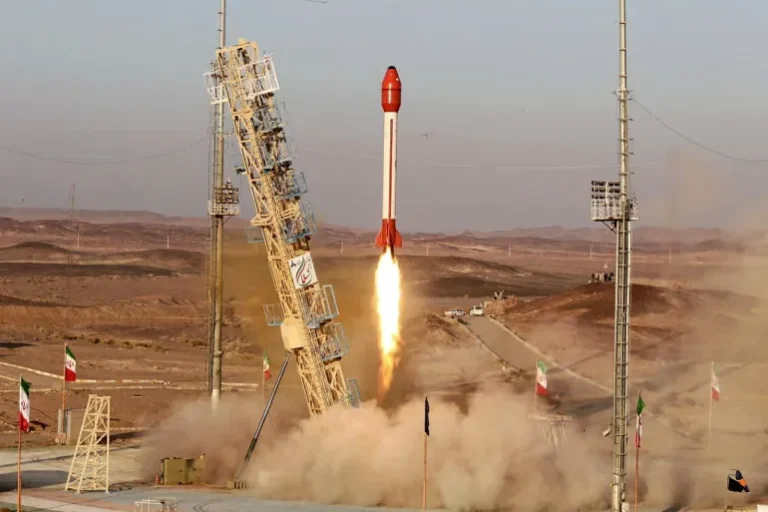Tehran, Iran – Iran has sent a capsule carrying animals into space as it boosts its Western-contested space programme in preparation for human missions.
State media on Wednesday released a clip of the launch of an Iranian-made rocket carrying the capsule, which they said was successfully sent 130km (80 miles) into orbit.
The Salman rocket carried an “all indigenous” capsule weighing 500kg (1,100 pounds), which is reportedly the heaviest biological capsule ever successfully carried in the history of the Iranian space programme.
Neither state media nor Telecommunications Minister Isa Zarepour, who confirmed the news, said what kind of animals were in the capsule.
The capsule was ordered by the Iranian Space Agency and developed by the aerospace division of the Ministry of Science, Research and Technology. The rocket was built by the aerospace wing of the Ministry of Defence and Armed Forces Logistics.
Hossein Dalirian, spokesperson for the space agency, put a video on X. “Launch of the bio capsule from a new angle,” he wrote.
Iran started work on sending animals into space in the mid-2000s and had its first successful launch in 2010. It reported in 2013 that it had sent two monkeys into space and brought them back.
Dalirian claimed on Wednesday that the administration of President Ebrahim Raisi has “effectively revived” work on Iran’s longer-term goal of sending humans into space.
Critics of former centrist President Hassan Rouhani maintain that his administration all but halted work on the Iranian space programme – which includes the development of long-range ballistic missiles – in favour of engagement with the West that ultimately failed.
But as Iran’s 2015 nuclear deal remains in limbo after a 2018 unilateral United States withdrawal which included imposing hefty sanctions on Iran, Tehran has made several high-profile space launches, including military launches.
The latest came in September, when the Islamic Revolutionary Guard Corps (IRGC) said it successfully put a third imaging satellite into an orbit 450km (280 miles) away. Several other satellite launches are expected in the coming months, per Iranian officials.
The US and its allies continue to condemn missile and space launches by Iran, especially those including long-range ballistic missiles, which could potentially be used to carry nuclear warheads.
Tehran has maintained that its nuclear programme is peaceful.
In August 2022, Russia helped Iran launch an imaging satellite from a space base in Kazakhstan, which was also received with concern from the West.
Similarly, Western allies are engaged in a standoff over rival space launches by Washington-backed South Korea and North Korea.
Following condemnation of its launch of a military satellite on November 21, Pyongyang this week accused the US of double standards after South Korea launched its first domestically built spy satellite into space from an aerospace base in California.


